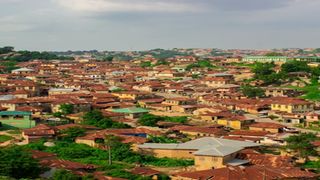
Popular pastimes in Nigeria
The Federal Republic of Nigeria is the African country with the highest population – and it covers almost a million square kilometers.
Nigeria now has sixth highest population in the world and its biggest city, Lagos, is one of the largest on the planet. The capital city, Abuja, however is little-known outside the country.
The country’s culture is a vibrant mix of imported colonial traditions and inherited local custom, according to the Britannica website.
With such a huge population of course there are many popular pastimes across Nigeria. Some may be passionate about world football – while others are happily playing omaha poker in Canada.
There’s mix of religious influence too, with roughly half of Nigeria being Christian and half Muslim. This is reflected in different preferences for leisure time, says Britannica.
There are pubs and clubs serving alcohol in Christian areas, but not in Islamic ones. Cinemas show mainly American and Indian movies, but due to the scattered nature of electricity the influence of TV is less universal.
In all classes, much of Nigerian life centres around the family. Many social gatherings are family groups, and many events are celebrated within the family.
A large proportion of Nigerians live abroad so many social events revolve around returning visitors from abroad.

Nigerian cuisine
One pastime most Nigerians share is a love of cooking and food.
Local specialities often involve seafood, beef and poultry with great regional variations about the style and flavours used. Look out for extra ingredients like melon seeds, tomatoes, onions, peppers and okra.
Nigerian arts
There’s a world-famous cultural heritage in Nigeria. Today’s arts scene is one of Africa’s most impressive.
From the extraordinary Benin bronzes and terracotta Nok figures of ancient times to today’s acclaimed artists, Nigerians love to create and appreciate visual art.
Britannica highlights the role of the Oshogbo art movement from the early sixties. The names of its leading lights, Muraina Oyelami, Twins Seven Seven, Bisi Fabunmi, Tijani Mayakiri, Rufus Ogundele and Ademola Onibonokuta, are well-known within Nigeria.
Within the wide spread of the country’s ethnic groups there’s a fabulous range of music and dance too. This can range from traditional homemade flutes and wooden clappers to modern electric instruments from the west.
In Nigerian society music is used as an accompaniment to all sorts of events, from state assemblies to family funerals. Dance forms are similarly wondrous, from the colourful costumes of the Ishan stilt dancers to the ceremonial boorii dances of the Hausa tribes.
Nigerian TV and radio often broadcast programs based around ethnic culture, with traditional music, dance, folk operas and storytelling all featuring.
Popular music in Nigeria
Despite all these ancient cultural influences, says Britannica, Nigeria’s modern music scene is one of the most lively and successful in Africa. Many Nigerian musicians have had a global impact.
Stars include King Sunny Ade’s juju music with interweaving guitars and talking drums and Fela Kuti’s Afro-jazz instrumentals. The genres of Afrobeat and Afropop originated here.
Nigerian musicians have won a dozen Grammy awards since the 90s. Recent big names include Wizkid and Burna Boy, who now plays to sell-out venues in America.
The style may combine ancient instruments with hiphop production techniques but usually features a classic infectious rhythm. It makes most Nigerian music perfect for dancing, whether the audience is in a Lagos club or in a stadium concert in the USA.
Nigerian sport
The British rulers introduced western style sports to Nigeria. Soccer has been a particular local success story.
Playing football spread through mission schools across the country. Other popular sports include boxing, athletics and tennis.
Nigeria became independent in 1960 and these sports became part of the way the different ethnic groups of the country were able to feel a national unity.
The national football team, nicknamed the Super Eagles, has had great success. Star players have included Nwanko Kanu and Jay-Jay Okocha.
The Nigerian men’s team has reached the World Cup Finals in 1994, 1998 and 2002. The women’s team has repeatedly made it to the world cup finals too.
Meanwhile Hakeen Olajuwon became an NBA basketball star in America and Richard Ihetu won several world boxing titles. Nigeria is also always considered a major force at the summer Olympic Games.
The Nigerian Lifestyle
Much of the culture and activity of Nigeria revolves around the climate. The warmth of the climate means outside pastimes are very popular.
For example, dancing and music are as likely to be in the street or garden as in a club or bar. People are often likely to be outside enjoying playing or watching sports too.
Western customs and pressures have been a huge influence on Nigeria, but the local traditions and climate play an even bigger role. They have helped turn modern Nigeria into one of the world’s great cultures.


